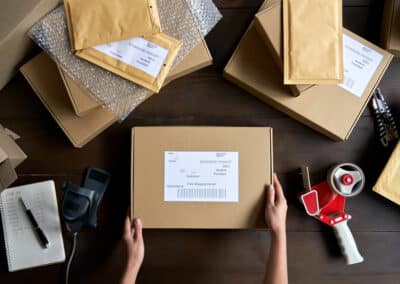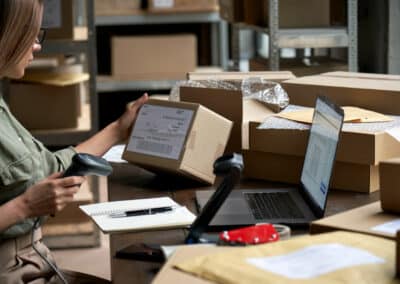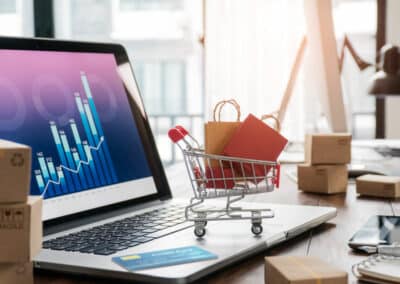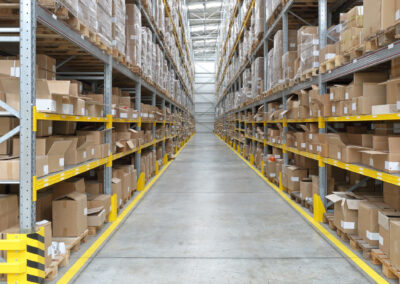German WEEE law (ElektroG) –
How to sell electronics online in Germany

by Andreas Landes – 18 Min. read time
last updated 15/06/2023
Electronics are among the top performing products in the e-commerce sector, and for online sellers targeting the German market, it’s crucial to be aware of the regulations surrounding Waste of Electrical and Electronic Equipment (WEEE). WEEE encompasses any device that runs on electricity or uses batteries and has reached the end of its life cycle. Proper management of electronic waste is vital for environmental sustainability and resource conservation. In fact, it is illegal for businesses to sell electronic products in Germany without first getting a valid WEEE-registration or appointing a WEEE authorized representative.
In this article, Andreas Landes, Co-Founder & CEO of ecosistant, will show how to get compliance with the German Electrical and Electronic Equipment Act.
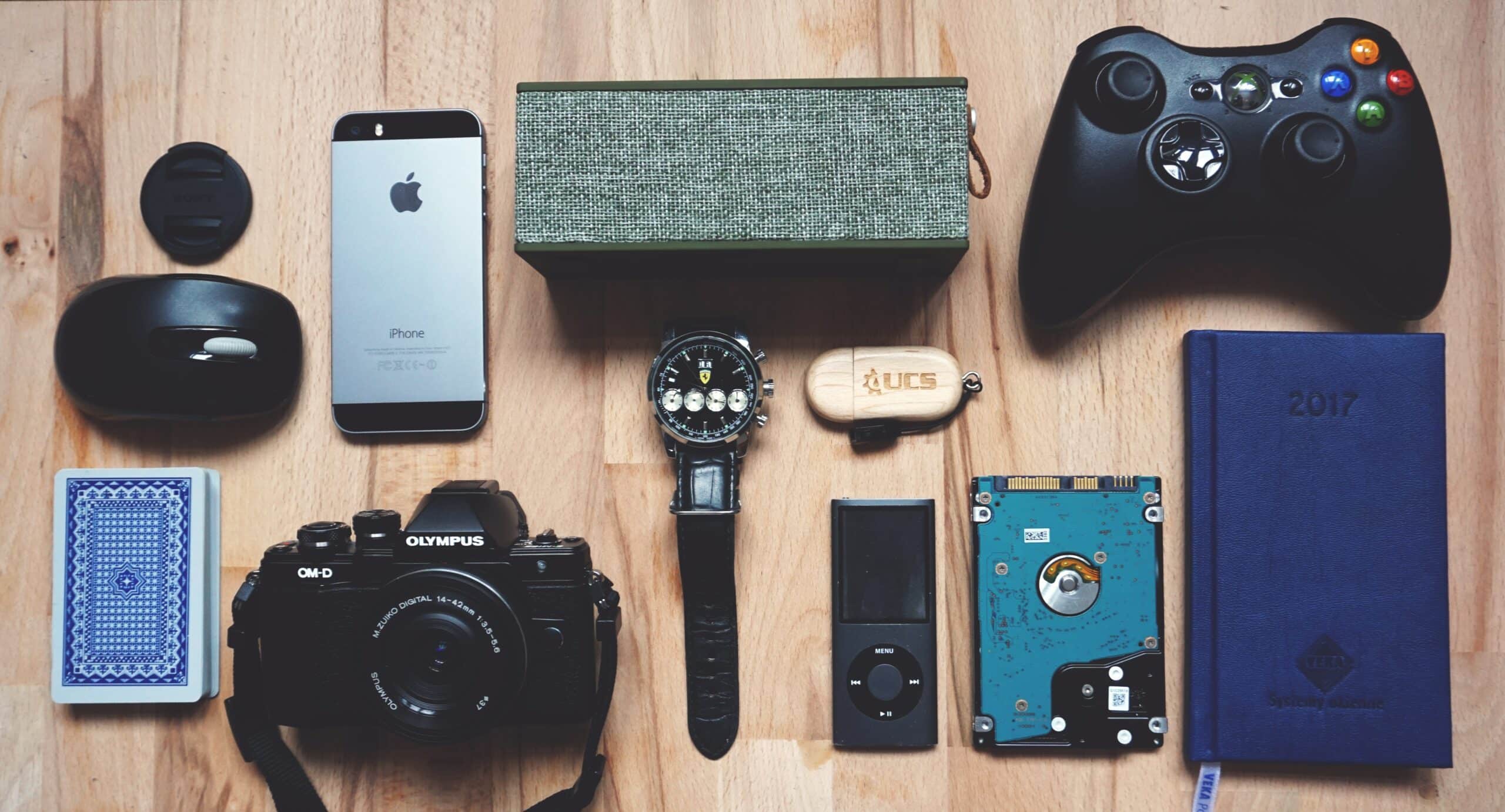
Overview of the German Electrical and Electronic Equipment Act (ElektroG)
In Germany, the Elektro- und Elektronikgerätegesetz (German Electrical and Electronic Equipment Act/ElektroG) is the legislation that governs the handling of electrical and electronic equipment waste. It aims to ensure the environmentally responsible disposal, recycling, and recovery of WEEE while holding manufacturers, distributors, and sellers accountable for their products’ end-of-life management.
The ElektroG covers a wide range of products, including household appliances, IT and telecommunications equipment, consumer electronics, lighting equipment, electrical tools, toys, and sports equipment. If you sell any of these products to consumers in Germany, you are subject to the obligations outlined in the ElektroG.
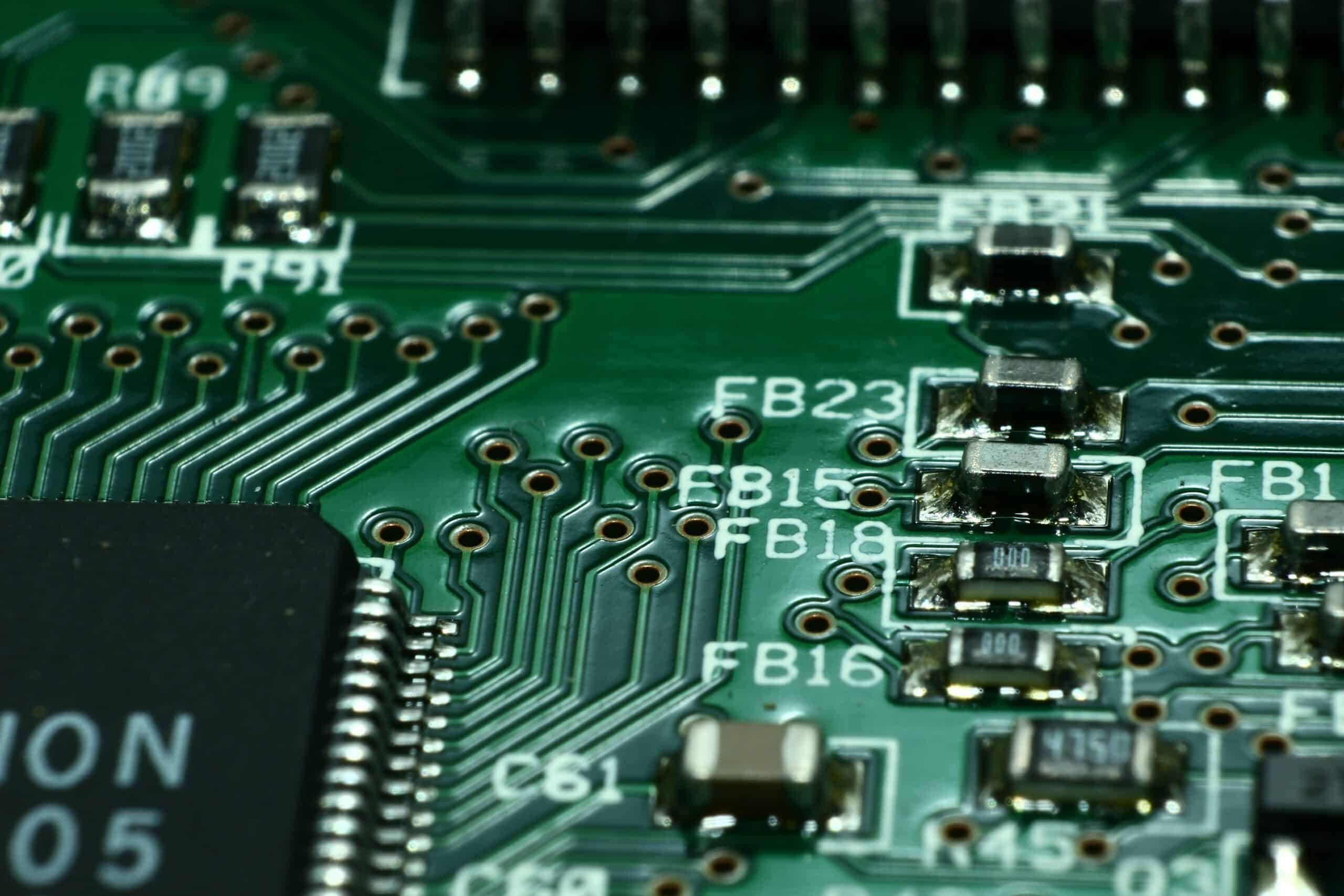
Why is compliance with the WEEE law important for online sellers?
By complying with the ElektroG, you contribute to the proper collection, recycling, and disposal of electronic waste, reducing the potential environmental impact of hazardous substances found in electronic devices.
Additionally, the ElektroG promotes resource efficiency by encouraging the recovery and reuse of valuable materials from discarded electronic devices. This aligns with the circular economy principles, where products and materials are kept in use for as long as possible.
Understanding the obligations under the ElektroG is crucial for online sellers targeting the German market. Failure to comply with these obligations can result in financial penalties, damage to your reputation, and legal consequences.
In the next sections of this article, we will delve into the specific compliance requirements for online sellers, the process of WEEE registration, reporting obligations, take-back systems, and best practices to ensure WEEE compliance.
WEEE compliance requirements for online sellers
As an online seller targeting the German market, it’s important to understand the compliance requirements imposed by the ElektroG. By complying with these requirements, you can ensure that you meet your obligations and contribute to the proper management of electronic waste.

Obligation to register with the German WEEE authority Stiftung ear:
Before selling electronic products in Germany, you first must obtain a WEEE registration number from Stiftung ear. Be aware that the registration typically takes 6 weeks or longer. After registering, sellers must state their WEEE-reg.-nr. in contractual documents with German customers and on their website.
While German businesses can comply with the law directly, online sellers from outside of Germany are required to appoint an authorized representative to fulfill the WEEE compliance in their name.
Appointment of an WEEE Authorized Representative:
One of the key obligations for non-German online sellers is appointing an authorized representative in Germany. The authorized representative acts as a liaison between your business and the German authorities, ensuring compliance with the ElektroG on your behalf. They serve as a point of contact for regulatory authorities and handle tasks such as registration and reporting.
When selecting an authorized representative, consider their expertise in WEEE compliance, their knowledge of the German market, and their ability to effectively communicate with relevant stakeholders. It is essential to establish a clear agreement and understanding of the responsibilities and expectations between you and your authorized representative.
Specialized EPR consulting businesses such as ecosistant offer the full service, meaning that they act as your authorized representative and fulfill all collection, reporting, and recycling obligations for you.
Customers of Alaiko will get a 20% discount voucher valid for all services of ecosistant. Simply get in touch with your account manager and ask for the partner discount.
Understanding Reporting Obligations under the WEEE law:
Online sellers are required to report specific information related to the electrical and electronic devices they place on the German market. This includes details such as the number and types of devices sold, their categories, and the associated weights of their products. It is important that you track and report the weight and volumes based on the different WEEE categories as lined out by the EU WEEE directive, listed below:
| Category | Device-type / Collection-group | Examples |
| 1 | Temperature exchange equipment | Freezer, air conditioner |
| 2 | Screens, monitors, and devices containing screens with a surface area of more than 100 cm² | TV, notebook, E-reader |
| 3 | Lamps | Energy-saving lamp, LED-pipe |
| 4 | Appliances where at least one of the external dimensions exceeds 50 cm (large appliances) | Washing machine, dishwasher, PC, E-Scooters |
| 5 | Appliances in which none of the external dimensions exceeds 50 cm (small appliances) | Power drill, toaster, DVD-player, beamer, watch, headphones |
| 6 | Small devices of information and telecommunication technology in which none of the external dimensions exceeds 50 cm | Smartphone, WLAN devices, USB sticks, hard drives, graphics cards |
These reporting obligations aim to provide transparency and accountability in the management of electronic waste. The reported data helps regulatory authorities monitor the volume of electronic devices being placed on the market and track their proper disposal and recycling.
It is important to keep accurate records of your sales and product data to fulfill your reporting obligations effectively. Maintaining organized documentation will not only ensure compliance, but also help you analyze your business’ environmental impact and identify opportunities for improvement. Be aware that not only the weight of the electronic components of the product is important, but the overall weight of the whole product as it will be disposed of by the consumer. For instance, when selling laptops, the weight of the plastic housing and the screen must also be accounted for.
Ensuring Compliance with WEEE Labeling:
Proper WEEE labeling is another crucial aspect of compliance for online sellers. The ElektroG requires specific labeling on electrical and electronic devices to inform consumers about their proper disposal and the environmentally friendly symbol, such as the crossed-out wheeled bin.
Make sure that the products you sell are appropriately labeled with the relevant WEEE symbols and disposal instructions. Compliance with labeling requirements demonstrates your commitment to responsible waste management and enables consumers to make informed decisions about the end-of-life treatment of the products they purchase.
Possible consequences and penalties when not complying with ElektroG
Non-compliance with WEEE legislation can have serious consequences for online sellers targeting the German market. The regulatory authorities are vigilant in enforcing the law to ensure proper management of electronic waste and protect the environment. Here are some potential consequences and penalties of non-compliance:
- Financial Penalties: Failure to meet the obligations outlined in the ElektroG can result in significant financial penalties. The exact amount of the penalty may vary depending on the nature and severity of the non-compliance. Selling electronics on the German market without proper WEEE registration can be fined with up to 100,000 euros according to §45 ElektroG. These penalties can have a substantial impact on your business’s bottom line and profitability.
- Damage to Reputation: Non-compliance can damage your reputation as an online seller. Consumers increasingly value sustainability and responsible practices. If your business is perceived as not adhering to environmental regulations, it can lead to a loss of trust and loyalty from environmentally conscious customers.
- Legal Consequences: Non-compliance with the ElektroG may also lead to legal consequences. Regulatory authorities have the power to take legal action against non-compliant businesses, which can result in further financial liabilities and potential legal disputes.
- Market Access Restrictions: Failure to comply with the ElektroG may result in restrictions on market access. Regulatory authorities can impose sanctions that limit your ability to sell electronic products in Germany, potentially leading to a loss of market opportunities and revenue.
Please note that the specific penalties and consequences of non-compliance may vary depending on the circumstances and the discretion of the regulatory authorities. It is advisable to consult with legal experts or authorized representatives for precise information related to your business’s compliance obligations.
Remember, compliance with the ElektroG is not only a legal requirement but also an opportunity to differentiate your business and gain a competitive advantage. By prioritizing environmental sustainability and responsible e-waste management, you can build a positive brand image, attract eco-conscious customers, and contribute to a more sustainable future.
WEEE legislation in other European countries
Germany is not alone with its ElektroG; in fact, similar WEEE laws exist in all of the 27 EU member states, the UK, Switzerland, Norway, and plenty of other European and non-European countries. All of the EU laws on e-waste follow the same principle of “extended producer responsibility”.
For online sellers, this means that authorized representatives for WEEE must be appointed in each state where they sell electronic products to the end-consumer. Thus, cost of compliance across Europe can be very high – even big players in e-commerce should therefore evaluate their market potential in each country closely, and focus on core markets at first.
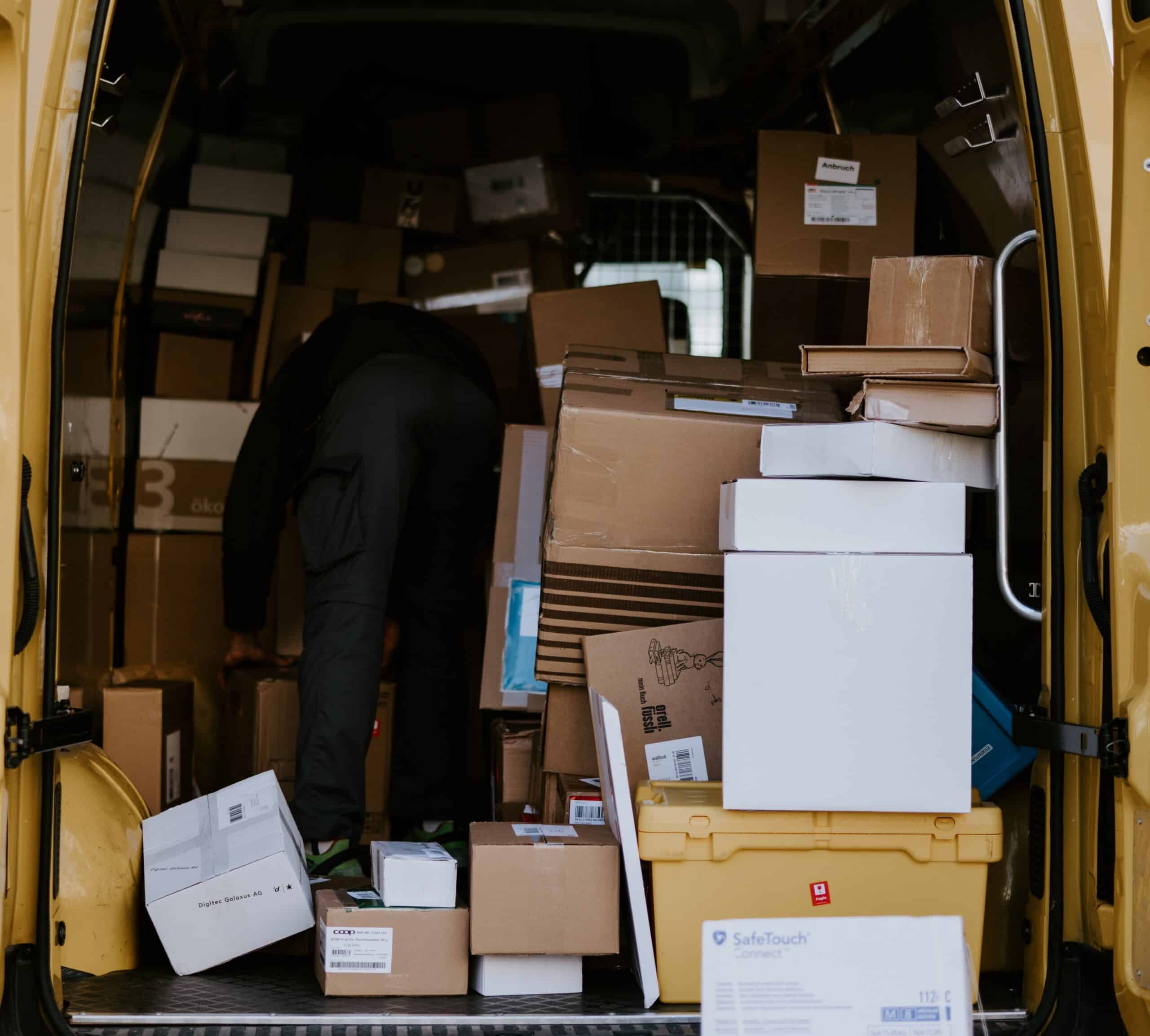
Responsible e-commerce with electronic products
In conclusion, complying with the ElektroG and fulfilling your WEEE obligations as an online seller targeting the German market is crucial for environmental sustainability and responsible business practices.
By appointing an authorized representative, understanding reporting requirements, and ensuring proper WEEE labeling, you contribute to the proper management of electronic waste and build trust with eco-conscious consumers, while at the same time avoiding legal or financial consequences. Embrace your role in responsible e-waste management and prioritize the circular economy for a sustainable future.
Title image by Stocksnap on Pixabay, other images by Thomas1311 on Pixabay, Claudio Schwarz on Unsplash and Firmbee.com on Unsplash.
About the author
Andreas is passionate about creating a more sustainable e-commerce environment. Facing the challenge of fulfilling EPR (“extended producer responsibility”) laws across Europe in his role as Operations Manager for a major fashion e-commerce player, he decided to co-found ecosistant.eu to help simplify the task for others.
ecosistant is a tech-startup and consulting agency located in Berlin, Germany, and acts as a node point between recycling schemes and e-commerce sellers. Since 2020, ecosistant has helped thousands of e-commerce and Amazon sellers fulfill their legal recycling obligations and obtain their EPR-registrations across all European markets.
Alaiko Posts
